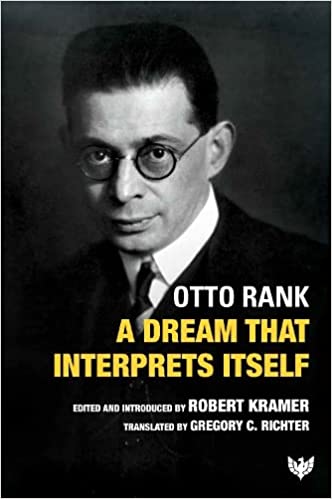Otto Rank
Freud considered Otto Rank to be the most brilliant of his disciples. With access to the master’s most intimate thoughts and feelings, Rank contributed two chapters to The Interpretation of Dreams in 1914. His name would appear below Freud’s on the title page for the next 15 years.
In the wake of Freud’s rage against the pre-Oedipal thesis of The Trauma of Birth (1924), which proposed the heresy that mothers are just as powerful as fathers, those Rank had trained as analysts in Vienna were required to be re-analysed by Freudians in order to retain their credentials. Co-creator of the psychoanalytic movement with Freud, Rank was now anathema. His enemies in the inner circle, especially Ernest Jones, ‘fell on him like dogs,’ said Helene Deutsch, an early analyst.
For almost a century, Rank has been vilified, ignored, or simply forgotten by the psychoanalytic establishment. But with the publication in 1973 of Ernest Becker’s Pulitzer-prize winning, The Denial of Death, Rank’s fortunes began to change dramatically. Single-handedly, Becker brought Rank back from the dead, making a powerful case that Rank was the most brilliant mind in Freud’s circle, with more insight into human nature than even the master himself.
If the 20th century was Freud’s, the 21st century, as Becker predicted fifty years ago, is shaping up to be Rank’s, ‘the brooding genius waiting in the wings,’ according to Irvin Yalom.
A Dream That Interprets Itself
Sigmund Freud hired Otto Rank as his secretary and funded Rank’s PhD in literature at the University of Vienna. In 1910, at age 26, Rank published ‘A Dream That Interprets Itself’. Freud could not... (more)
A Psychology of Difference: The American lectures
This work is made up of a collection of lectures given by Otto Rank, a disciple of Freud, between 1924 and 1934. Topics covered include: separation and individuation; projection and identification;... (more)
Psychology and the Soul: A Study of the Origin, Conceptual Evolution, and Nature of the Soul.
An accessible translation of Rank's now classic work on religion and the soul. His commentary is not limited to beliefs about individual souls, but includes ideas about group souls. He suggests that... (more)






